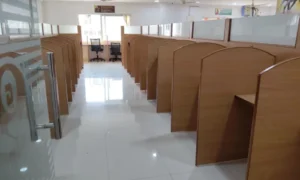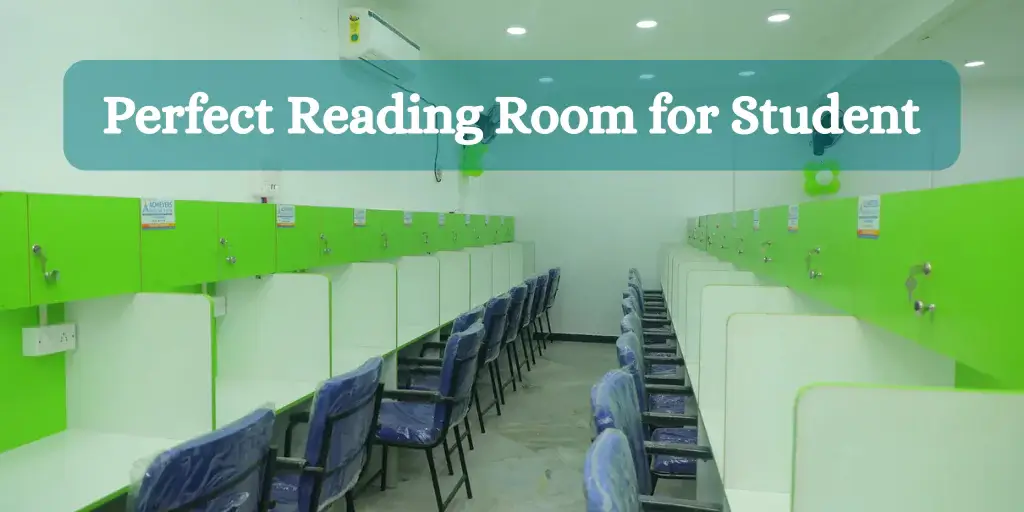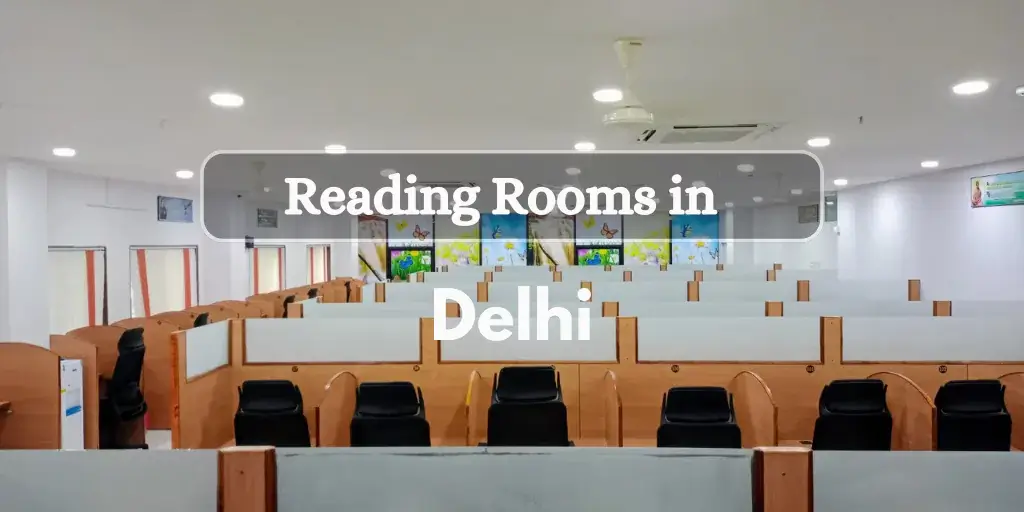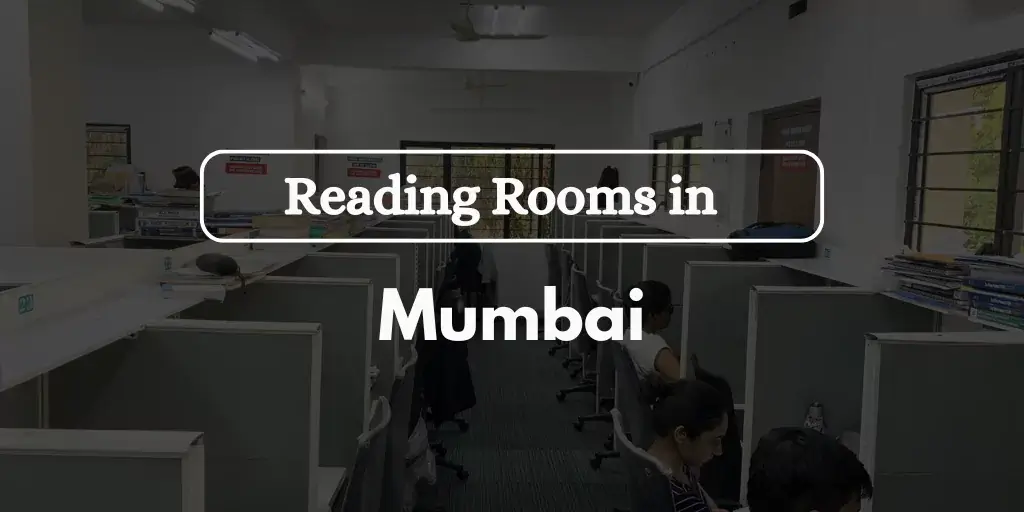Recently updated on March 29th, 2025 at 01:52 pm
A well-designed reading room can significantly enhance a student’s focus, comprehension, and productivity. Whether preparing for exams, working on assignments, or simply enjoying a book, having a dedicated and comfortable study space is essential. The ideal reading room should be quiet, well-lit, and organized to promote concentration and minimize distractions.
We’ll go over important things to think about in this guide to help you select a reading room that meets the individual needs of your students.
1. Location and accessibility:
Think about the reading room’s accessibility and location when choosing one. Pick a location that is convenient for you to get to from your house or the college. Close to classrooms, libraries, and other necessary places can improve convenience and save time.
2. Ambiance and Atmosphere:
The atmosphere in a reading room is crucial to your focus and concentration on your studies. Find areas with a calm and peaceful vibe. A tranquil setting, comfortable chairs, and proper lighting all help create a favourable study atmosphere.
3. Facilities and Amenities:

Consider the reading room’s amenities and facilities. A well-equipped reading room should have essential amenities like power outlets, Wi-Fi, and printing services. Other important factors are adequate ventilation, study tables, and comfortable seating arrangements.
4. Hours of Operation:
Double-check the reading room’s hours of operation. Choose a location that works with your study schedule. While some students prefer night sessions, others prefer early morning sessions. Select a reading room that works for the times you want to study.
5. Quietness and Interruptions:
Check the reading room’s noise levels and possible sources of distraction. A calm environment is essential for focused attention. While some reading rooms allow collaborative group work, others may have quiet zones or booths for those who require total quiet.
6. Technology and Connectivity:
Having access to technology is crucial in the digital age. Make sure the reading room has a reliable internet connection, and take into account whether or not there are any places where electronic devices can be charged. The process of doing research and studying can be improved by a tech-friendly environment.
7. Security:
Priority one when choosing a reading room should be safety. Select areas that have the necessary security measures in place, like surveillance cameras or employees on duty. Your safety and the things you own should come first.
8. Community and Networking Opportunities:
A sense of community among students may be encouraged by certain reading rooms. Think about whether you would benefit from a place that promotes networking and collaboration or whether you prefer a private study environment.
9. Reviews and Recommendations:
Read the web or Google reviews or ask other students for recommendations before making a final choice. Independent viewpoints can offer insightful information about the benefits and drawbacks of various reading rooms.
10. Library Resources:

Investigate the resources offered if the reading room is inside or close to a library. A well-stocked library can provide a wide range of books, journals, and other references, making it a true mine of academic resources.
11. Comfort and Ergonomics:
Test how comfortable the seating options are and how well-designed the study furniture is. Your ability to concentrate for a long time without discomfort or distraction can be greatly impacted by comfortable chairs and workstations.
12. Temperature and lighting:
In the reading room, pay attention to the lighting and overall temperature. A room that is properly ventilated and has sufficient lighting can help avoid eye strain and fatigue, making studying more enjoyable and effective.
13. Study Room Policies:
Become comfortable with the reading room’s policies. Certain locations might have particular guidelines about talking in groups, how loudly people can talk, and how much food and drink can be consumed. Verify that the policies suit your study habits and preferences.
14. Alternative Study Spaces:
Think about if there are any other study areas available in the reading room. While some students might do better in quiet corners, others might do better in open spaces. Different learning styles and preferences are accommodated by having a variety of study spaces.
15. Collaborative Spaces:

Find reading rooms that provide group study rooms or collaborative spaces if cooperation is a key component of your study strategy. Usually, these spaces have projectors, whiteboards, and other equipment for group work.
16. Feedback Mechanism:
Look into the possibility of a feedback system in the reading room. This can include online discussion boards, suggestion boxes, and recurring polls. Based on user needs, a reading room that values student input is more likely to change and get better.
17. Cafeteria or Refreshment Options:
There are reading rooms that are connected to cafeterias or that have snack options close by. If having access to food and drink is important to you, pick a reading room that is close to these facilities.
18. Environmental Sustainability:
Take into consideration reading rooms that emphasize environmentally friendly practices in this era of sustainability. Find areas with recycling programs, energy-efficient lighting, and other environmentally friendly elements.
Conclusion:
When you set out to choose the perfect reading room, keep in mind the small factors covered in this wide guide. Every element influences the overall quality of your study area, from the comfort and library resources to the sustainability of the environment.
You’ll be well-equipped to select a reading room that not only satisfies your immediate academic needs but also improves your overall learning experience if you carefully consider these factors.







production company
September 4, 2024need a video? video production company in italy offering full-cycle services: concept, scripting, filming, editing and post-production. Commercials, corporate videos, social media content and branded storytelling. Professional crew, modern equipment and a creative approach tailored to your goals.
Bobby Pacholski
September 4, 2024fantastic post, very informative. I wonder why the other specialists of this sector don’t notice this. You should continue your writing. I am confident, you’ve a huge readers’ base already!